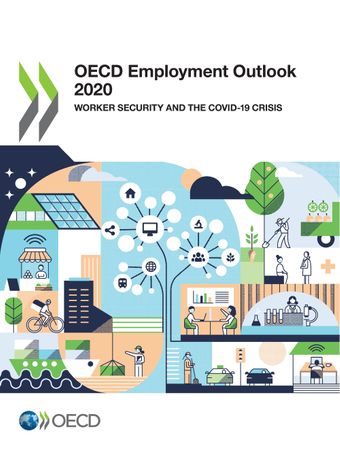- OECD Home
- About
-
Countries
-
A-C
- Afghanistan
- Albania
- Algeria
- Andorra
- Angola
- Anguilla
- Antigua and Barbuda
- Argentina
- Armenia
- Aruba
- Australia
- Bhutan
- Bosnia and Herzegovina
- Botswana
- Bolivia
- Brazil
- British Virgin Islands
- Brunei Darussalam
- Bulgaria
- Burkina Faso
- Burundi
- Cabo Verde
- D-I
- J-M
- N-R
- S-T
- U-Z
-
A-C
- Topics
- Coronavirus (COVID-19)
COVID-19 is causing activity to collapse and unemployment to soar
As the effects of containment measures and forced lockdowns hit OECD economies, millions of people have been unable to go to work, resulting in an exceptionally stark drop in activity and unprecedented job losses. Up to 10 times fewer hours were worked in some countries, compared with the first few first months of the 2008 financial crisis.
Social sharing
While millions have been furloughed or moved onto reduced hours, millions of others have lost their jobs entirely, with little improvement in sight.
The worst jobs crisis in nearly a century
Unemployment is projected to reach nearly 10% in OECD countries by the end of 2020, up from 5.3% at year-end 2019, and to go as high as 12% should a second pandemic wave hit. A jobs recovery is not expected until after 2021.
Whether because of higher unemployment or people working fewer hours, the impact of the pandemic on jobs has not been felt to the same extent in all countries .
Some countries hit worse than other
In some countries, employers used job retention programmes to cut hours while allowing workers to keep their pay and jobs; there, it is likely that the full impact of the pandemic is yet to be felt. In others, there have been unprecedented leaps in unemployment, but many workers will return to their jobs as economies re-open and activity picks up, though there may be losses.
Select a country to view its unemployment data. To learn more, discover our multilingual COUNTRY NOTES (right below the chart).
Taking action to support jobs and workers
This jobs crisis risks turning into a social crisis. In the sectors most affected, up to half of all workers have part-time or temporary contracts or are self-employed. Many lack job security and have limited access to unemployment benefits. Countries have provided extraordinary levels of support and should do all they can to maintain it for the most vulnerable, while working to build more inclusive and resilient labour markets.
Policies should move to targeting vulnerable groups and tailored to people’s circumstances.
Young people and women hit hard by jobs crisis
Social sharing
To cushion the effects of the jobs crisis, governments have taken extraordinary steps.
Keeping jobs, supporting workers
Many countries are using job retention programmes to help keep workers employed. These include measures that directly subsidise hours not worked, such as Germany’s Kurzarbeit or France’s Activité partielle, as well as measures that also top up the earnings of workers on reduced hours, such as The Netherland’s NOW (Noodmatregel Overbrugging Werkgelegenheid) or the Job Keeper Payment in Australia. About 60 million people across the OECD have been included in company claims for such programmes.
Social sharing
Publications and key resources
WORKER SECURITY AND THE COVID-19 CRISIS; OECD Employment Outlook 2020
The 2020 edition of the OECD Employment Outlook focuses on worker security and the COVID-19 crisis. It provides an initial assessment of the labour market consequences of the COVID-19 outbreak and the resulting economic crisis. It also presents an overview of the emergency labour market and social policy measures implemented by OECD countries and discusses directions for further policy adaptation as countries move out of lockdown.
Book and resources on economy on iLibrary Highlights Lire le rapport Lire le rapport







